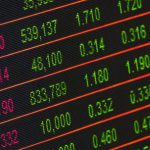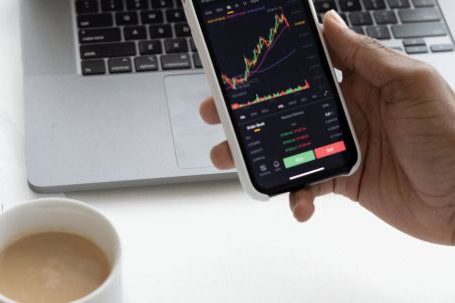The stock market is a complex and unpredictable environment, influenced not only by economic factors but also by the psychology of investors. Two dominant emotions that drive market behavior are fear and greed. Understanding the psychological underpinnings of these emotions can provide valuable insights into the market’s movements and help investors make more informed decisions.
Fear: The Driving Force Behind Market Downturns
Fear is a primal instinct that plays a significant role in the stock market. During times of uncertainty or negative news, fear can grip investors and lead to a mass sell-off. This fear-driven selling can create a downward spiral, causing stock prices to plummet.
The Fear of Loss: Protecting Investments
One of the key fears that influence investors is the fear of loss. People are naturally averse to losing money, and this fear can be amplified in the stock market, where the potential for losses is significant. When investors perceive an impending market downturn, they often rush to sell their holdings to avoid further losses.
Herd Mentality: Following the Crowd
Another aspect of fear in the stock market is the herd mentality. Humans are social creatures, and when it comes to investing, people tend to follow the crowd. If a significant number of investors start selling, others are likely to join in, fearing that they might miss out on an opportunity to protect their investments. This herd mentality can create market panics and exacerbate the downward spiral.
Greed: The Catalyst for Market Booms
While fear dominates during market downturns, greed takes center stage during periods of economic prosperity. Greed can drive investors to take on excessive risks and push stock prices to unsustainable levels.
The Desire for Wealth: Chasing High Returns
Greed is fueled by the desire for wealth and high returns. Investors are often enticed by the possibility of making significant profits in a short period. This desire for quick wealth can lead to speculative behavior, where investors overlook fundamental market factors and invest solely based on the potential for high returns.
Market Bubbles: The Result of Greed
Greed can also lead to the formation of market bubbles. When investors become overly optimistic about a particular sector or asset class, prices can skyrocket far beyond their intrinsic value. This inflated market sentiment is driven by greed, as investors hope to capitalize on the upward trend. However, when the bubble bursts, prices crash, leaving many investors with substantial losses.
The Role of Psychology in Investment Decision-making
Understanding the psychology of fear and greed is crucial for investors to make rational decisions. Emotions can cloud judgment and lead to impulsive actions that may not align with long-term investment goals.
Controlling Fear: Staying Rational in Turbulent Times
To overcome fear in the stock market, investors need to stay rational and avoid making decisions based solely on emotions. Conducting thorough research, diversifying portfolios, and setting clear investment goals can help mitigate the impact of fear on investment decisions.
Managing Greed: Balancing Risk and Reward
Managing greed requires a balanced approach to risk and reward. Investors should set realistic expectations and avoid chasing unrealistic returns. Implementing disciplined investment strategies, such as dollar-cost averaging and regular portfolio rebalancing, can help keep greed in check.
In conclusion, the psychology of fear and greed plays a significant role in the stock market. Fear drives market downturns, leading to mass sell-offs and market panics. Greed, on the other hand, fuels market booms, pushing prices to unsustainable levels. Understanding these psychological factors can help investors make better-informed decisions and navigate the volatile nature of the stock market. By staying rational and managing emotions, investors can increase their chances of long-term success in the market.





